Raising chickens from day old chicks is involved with lots of work. And it requires you to check on them often during the first few weeks.
Although, it’s really fun and very pleasuring to take care of them and watch them turn from downy, fluffy little balls into feathered birds.
Raising Chickens From Day Old Chicks
You can easily raise some day old chicks to happy and healthy laying hens or roosters if you know the basics of raising chickens. Here we are trying to describe more about raising chickens from day old chicks.
Step 1. Get Baby Chicks
First of all, determine the number of birds you want to raise and select a breed according to your needs. Then purchase chicks from any of your nearest poultry supplier/breeder.
You can purchase the chicks directly from a breeding farm or from a supplier in your area. Nowadays, some breeding farm or suppliers take and handle order through online.
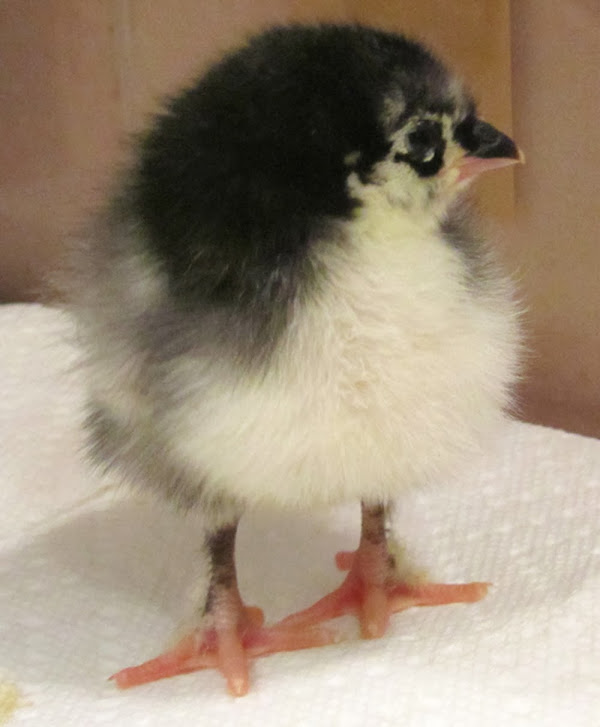
So, you can take this advantages too. We recommend visiting the farm or supply store directly and then purchase chicks.
Step 2. Setup the Brooder
Setting up brooder is a must for raising chickens from day old chicks. Brooder provides adequate temperature, shelter and protection to the chicks for their first few weeks of age.
Ensure that the brooder is dry, clean and safe. Use at least 4 inches litter in the brooder. You can make the litter with wood shavings, husk or newspaper.
In case of using newspaper, the litter doesn’t need to be 4 inches. It will be better if you use a few layer of papers. Temperature management is very important in the brooder. Chicks require about 95° Fahrenheit temperature for the first week.
Reduce the temperature each week at the rate of 5° Fahrenheit per week until the temperature reaches 70° Fahrenheit. You can use a heat lamp above the brooder for maintaining the temperature.
Step 3. Gather Chick Supplies
Chicks require some specific supplies. Gather the supplies before starting. Smaller sized (chick-sized) supplies are good for this purpose. For example, using chick-sized feeders or waterers will make the first few weeks easier.
Using smaller waterer will help the chicks not to drown. And chick-sized feeders will help the chicks to take food easily. Bedding is also needed for the baby chicks. Ensure, you have all the required supplies before starting.
Step 4. After Getting Your Chicks
After getting your chicks, check everything and make everything ready for them. Then settle them into the brooder so that they stay warm and happy. Probably your chicks are stressed due to the shipping process from hatchery or store.
So, gently bring them out from the box and dip their beaks into water. Then let them take rest and acclimate to their new home. Monitor the activities of chicks in the brooder. If they scatter to the edges, they may be too hot, so you’ll need to raise the lamp.
And if the chicks huddle under the lamp, they may be too cold, so lower the lamp. For the first few weeks, you need to check on them at least five times a day. And gradually less after that.
You have to keep them safe from other animals and overhandling by children. You also need to monitor their temperature. Always try to keep their feed and water fresh and clean.
Step 5. Feeding and Watering
Start with a chick starter and continue feeding for a few weeks. Depending on the type of your chickens (broiler or layer), you need to go to grower or finisher afterwards. Also ensure availability of sufficient amount of clean and fresh water for all time.
Step 6. Moving the Chicks to A Coop
After 4-5 weeks, your chicks are ready to move to their main coop for full time. Remove the heat lamp, if you use the brooder as their main coop.
Step 7. Caring for Growing Chickens
When the baby chick stage passes and they are moved to a new coop, now you have young pullets and cockerels. In this stage, you have to feed them grower feed until they start laying eggs. In this stage, they will require less care compared to baby chicks.
You can also allow them outside in this stage. If you allow them outside and if they start eating from outside, then you have to add some grit (small stones) to their feed. Because grit help the chickens to grind up grass, bugs and other foods which they eat from outside. Your hens will start laying eggs at their 4-6 months of age.
Hope this guide about raising chickens from day old chicks has helped you. Good luck and may God bless you!

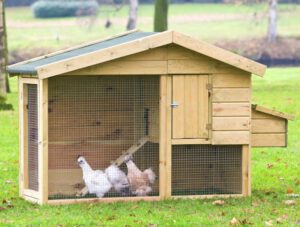
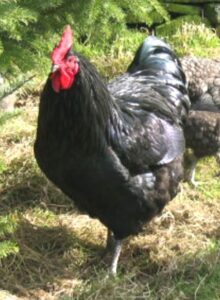
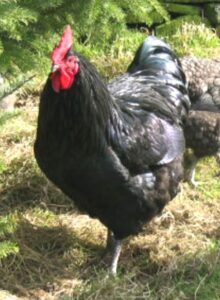

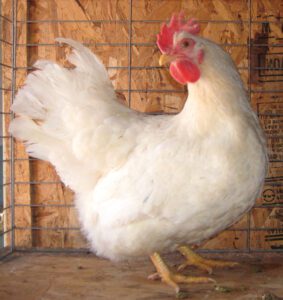
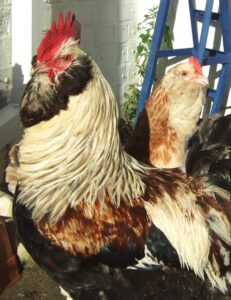
any Sebright hatchery in Namibia
Hi,Thank for your time to communicate on how to rise chicken.Am more interest on this farming but for layres chicken.